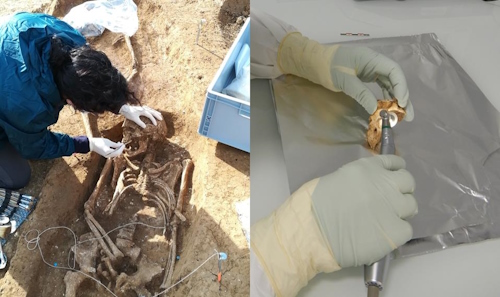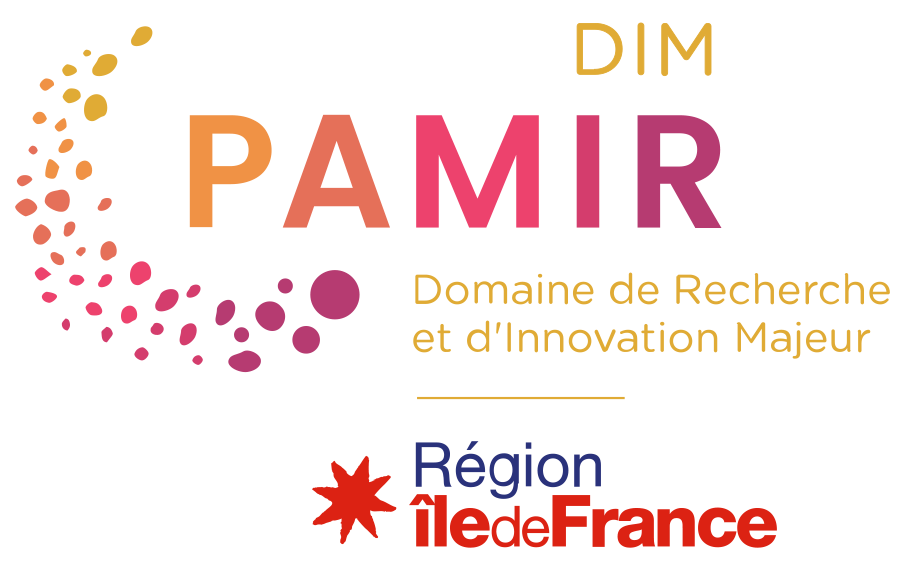
beDNA
National Archaeological Genetic Data and Sample Bank
Scientific responsibility :
- Philippe Chambon
- Céline Bon
- Stéphane Deschamps
Methodological axes :
Thematic fields :
Disciplinary sectors :
Partnership :
- Service régional de l’archéologie, ministère de la Culture
- Association Archéologie des Nécropoles
Funding :
- DIM PAMIR
- CNRS
- MNHN
Project ID : IDF-DIM-PAMIR-2023-8-001
Summary :
The beDNA project for a National Archaeological Genetic Data and Sample Bank (banque d’échantillons et de Données Nationale Archéogénétique), developed by UMR 7206 Eco-anthropology, aims at setting up a unique sample bank in order to anticipate future palaeogenetic analyses, through the systematic collection of human samples according to appropriate protocols from all archaeological excavations. The beDNA bank, placed under the authority and control of the ministère de la Culture, will provide optimal conservation conditions and centralized monitoring of samples.
This project includes (1) the creation of a database accessible to all researchers carrying out a genetic study project, (2) the implementation of a sample collection protocol common to all archaeological excavations that minimizes the risk of DNA destruction and contamination, (3) a storage space dedicated to the project, at the Musée de l’Homme (MNHN Paris) as well as (4) a process of evaluation of the requests and approval by the State of the requests for sample analysis.
The test phase of the project, which began in September 2020 in the Île-de-France region, enabled us to evaluate and adjust both the sampling protocol in the field and the transfer process to the beDNA bank. In parallel with the test phase, we are also setting up the beDNA database associated with the sample bank by combining an archaeological database (archaeological sites, samples) and a palaeogenetic database (follow-up and results of palaeogenetic studies).
This project includes (1) the creation of a database accessible to all researchers carrying out a genetic study project, (2) the implementation of a sample collection protocol common to all archaeological excavations that minimizes the risk of DNA destruction and contamination, (3) a storage space dedicated to the project, at the Musée de l’Homme (MNHN Paris) as well as (4) a process of evaluation of the requests and approval by the State of the requests for sample analysis.
The test phase of the project, which began in September 2020 in the Île-de-France region, enabled us to evaluate and adjust both the sampling protocol in the field and the transfer process to the beDNA bank. In parallel with the test phase, we are also setting up the beDNA database associated with the sample bank by combining an archaeological database (archaeological sites, samples) and a palaeogenetic database (follow-up and results of palaeogenetic studies).

